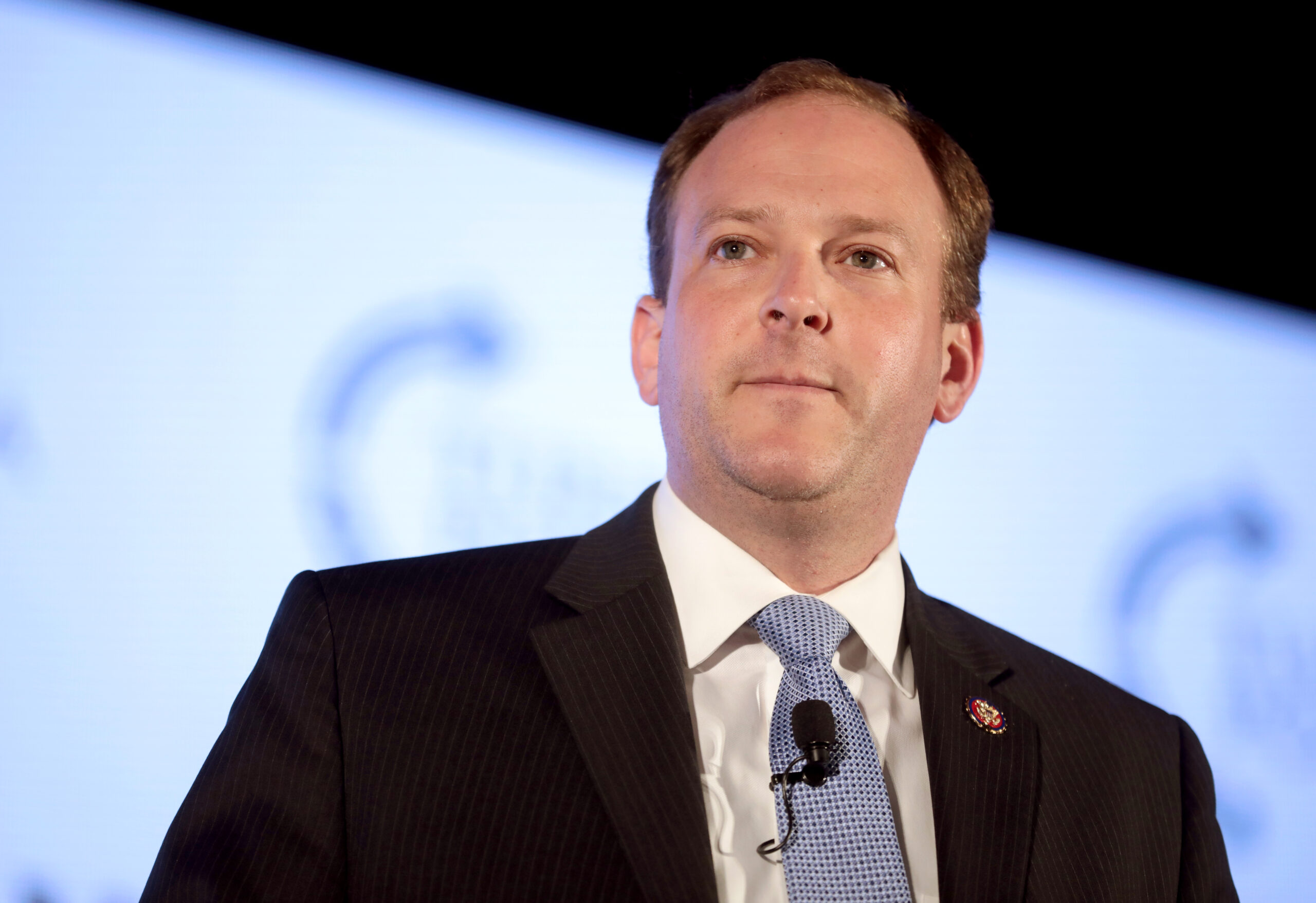
Lee Zeldin is Now the Head of the EPA: Here’s How That Spells Disaster for Public Health and Communities
By: Ranjani Prabhakar, Healthy Communities Legislative Director
Photo: Gage Skidmore / CC BY-SA 2.0
It should be common sense that the head of the Environmental Protection Agency (EPA) believes in protecting the public from environmental harm, right? Sadly, that’s not the case with Lee Zeldin, President Trump’s recently confirmed Administrator of the Environmental Protection Agency, the federal agency tasked with safeguarding public health and ensuring a clean and sustainable environment for all communities. In fact, his record on environmental and public health issues demonstrates an alarming disregard for this mission.
Zeldin’s environmental record is scant, but what we can glean from his time in Congress isn’t reassuring. During his time as a Representative from New York, Zeldin voted against crucial environmental protections, opposed climate action, and undermined public health safeguards. If this record is any indication of how he would head the EPA, his leadership will have devastating consequences for frontline communities across the United States. Here are three reasons why Zeldin is unfit to serve as EPA Administrator:
1. A Record of Undermining Public Health Protections
Lee Zeldin’s voting record reflects a troubling history of opposing public health measures designed to protect vulnerable communities from pollution and toxic exposures. He voted against the Inflation Reduction Act, which allocated billions of dollars for environmental safeguards like clean energy and lead drinking water pipes removal—critical for protecting low-income areas from lead exposure, known to cause developmental delays and neurological damage. We can look no further than the recent Flint Water Crisis to highlight the lasting health and economic burdens of lead contamination. Zeldin’s opposition to remediation efforts leaves communities like these at risk.
In Louisiana’s Cancer Alley, predominantly Black communities suffer from industrial air pollution, leading to high rates of cancer and respiratory illness. Zeldin’s opposition to clean air standards and carbon pollution limits and willingness to weaken standards already on the books would further harm communities like Cancer Alley. If his record is any indication, he will likely prioritize deregulation over public health, perpetuating environmental injustices and deepening inequities for vulnerable populations.
2. Neglecting Environmental Justice and Marginalized Communities
It’s not just the public health measures themselves. The Trump administration has already indicated clear hostility toward environmental justice through various executive orders. Zeldin will be tasked with executing those executive orders within the EPA, and the likely result will be the dangerous deregulation of polluting industries. His opposition to carbon pollution limits for power plants would hinder efforts to reduce harmful emissions in areas like the South Bronx, New York, where industrial pollution contributes to asthma rates among children that are eight times the national average. Zeldin’s opposition to the Inflation Reduction Act, which could fund cleaner energy and transportation options, signals a lack of commitment to improving public health in overburdened neighborhoods. Eliminating these investments while relaxing lifesaving environmental protections will force communities to continue suffering the consequences of unchecked pollution.
Communities along the Gulf Coast, such as Houston’s Manchester neighborhood, also endure the brunt of industrial pollution. Zeldin’s skepticism of environmental justice programs meant to safeguard these residents demonstrates a disregard for their experience and an unwillingness to support the funding, programs, and environmental protections that could drastically improve their lives. If Zeldin quickly implements recent executive actions targeting funding for environmental justice programs, the results would be more health disparities and further entrenched environmental inequities, leaving vulnerable populations at even greater risk.
3. Prioritizing Polluters Over Communities
Lee Zeldin’s stated intent to “roll back regulations” and his alignment with polluting industries raise serious concerns about his priorities as a potential EPA Administrator. By weakening the enforcement of environmental safeguards, his leadership would embolden industries that already cause significant harm to vulnerable populations. In Montana, coal mining has left a devastating legacy of polluted waterways, health crises, and destroyed ecosystems, with coal accounting for nearly 60% of CO2 emissions from the energy sector. Residents in these communities rely on EPA enforcement to ensure coal companies are held accountable for cleaning up their operations. However, Zeldin’s apparent willingness to enact Trump’s executive orders opposing funding for climate resilience and clean energy suggests he would neglect these responsibilities, leaving communities in western states to bear the long-term consequences of unchecked pollution.
Similarly, in flood-prone areas like North Carolina or Puerto Rico, Zeldin’s resistance to climate resilience initiatives would leave already vulnerable communities in greater jeopardy of future climate disasters. Repeated hurricanes and severe flooding have devastated low-income areas, and the National Flood Insurance Program operated by FEMA, which Zeldin opposed extending, has been a lifeline for families recovering from these climate-driven disasters. Flooding also exacerbates other toxic exposure issues, such as the spread of hog waste and the need for costly coal ash cleanups, which can further harm public health. Without support for climate resilience, families in these regions would struggle not only to rebuild but to prepare for future disasters. Zeldin’s record demonstrates a pattern of prioritizing polluters over communities, worsening the hardships faced by those already on the front lines of environmental and climate crises.
Lee Zeldin’s leadership could have a devastating impact on communities across the nation. His record and stated intentions for the EPA prioritize polluters over communities. These plans, coupled with President Trump’s already concerning executive orders, pose a direct threat to public health, environmental justice, and climate action. For these reasons, Earthjustice Action and Earthjustice joined the myriad of environmental advocates, public health organizations, and concerned communities in strong opposition to Zeldin’s confirmation. Protecting the health of our environment and the people who call it home requires leadership that prioritizes science, justice, and community well-being—not corporate profits.